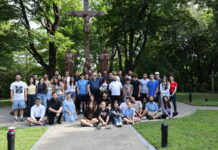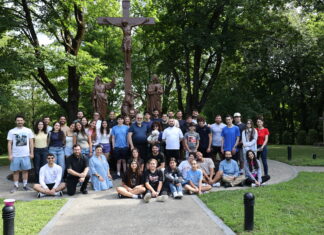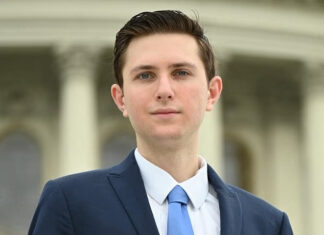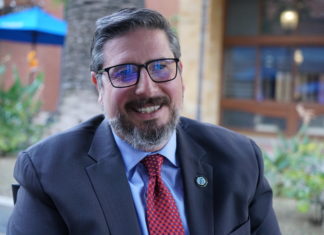By Aram Arkun
Mirror-Spectator Staff
RICHMOND, Va. — Albert Steven “Charlie” Diradour, an active real estate developer and public figure, announced his candidacy for City Council on February 8. Diradour has had a long history of political involvement, including work on a number of campaigns of Democrats on a local and national level, and an attempted run against Eric Cantor for Congress. He is president of the Lion’s Paw Development Company.
The 48-year-old Diradour became interested in politics while still a child. He said, “The truth of it is when you grow up in an Armenian household, you sit around and drink coffee in the morning and talk about politics. My mother and father would talk about current events. It made me want to know more about how the government works, and how we all fit in.” Diradour learned a lot from his father, though they may have had differing political party affiliations. For example, he said, he was taught that “It’s our duty to stand up if something is wrong, point it out and say that it is wrong, and then go further. By that I mean you propose something that is better, a solution rather than just pointing the problem out.” Diradour also felt that his inclusive and pragmatic approach to politics may have something to do with his Armenian background. After all, he pointed out, “Armenians are good at negotiating, making deals and coming to a middle point politically.”
After high school, Diradour attended Fordham University in New York, and then started working in the family real estate business. Both of Diradour’s parents were Republicans, but Diradour became a Democrat. Perhaps it had something to do with the times, because in the 1980s most Virginians were Democrats. But there was more to it than that. Diradour said, “I never felt comfortable calling myself a Republican because I don’t believe that we should tell people how to live their lives. For Republicans, at least in the 1980s and 1990s, a lot of social issues were at the fore — and I didn’t agree with the Republican stance on any of them.” Among other things, Diradour is a strong supporter of a woman’s right to choice concerning abortion.
Diradour’s local role models are Virginia Democrats like Chuck Robb, Douglas Wilder and Mary Sue Terry. He felt they are “people who are fiscally conservative and responsible, and yet socially they understand that understanding each other is the first step towards respecting each other as human beings. For me, being a Democrat means being inclusive, listening and understanding others’ viewpoints.”







